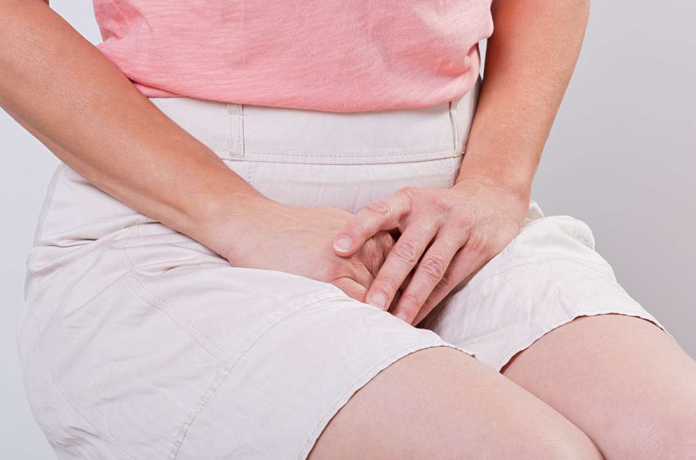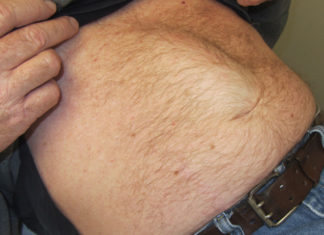Women’s health is complex and susceptible to be misread, misunderstood and even left undiagnosed. Spotting after a
Bleeding out each month is itself a distressful affair, but alarm bells ring when there’s sudden spotting, even after menstrual periods is over. There can be various reasons for spotting between periods, the most common being ovulation, use of contraception and pregnancy.
Spotting may seem benign and harmless, but if it continues for a long time, it not only aggravates the prevailing condition, but it also weakens your body because of the anaemia.
Any form of bleeding outside the normal menstrual cycle is called spotting. It is usually a brownish, rust-like colour and can sometimes be pink. You would usually find it released either while using the washroom or as thin stains in your underwear.
But unlike the regular bleeding during the
Now, the menstrual cycle and pattern of bleeding
It is important to distinguish between menstrual bleeding and spotting as the time, flow and nature of these two hold the keys to menstrual health.
Various Factors Behind Spotting After Periods?
There can be several reasons for bleeding in between your periods. Ovulation, birth control, implantation bleeding, stress, perimenopause can be some factors for spotting.
Apart from natural and uncontrollable reasons for spotting, several lifestyle changes affect women’s health and well-being. These lifestyle changes affect women’s endocrine glands and lead to several bodily changes that adversely affect regular metabolic functions.
Stress, Birth Control Pills, Ovarian Cysts
Spotting as an effect of certain kinds of imbalances in women’s health in the 21st century is solely due to several lifestyle factors that disrupt the natural functioning of the female body. An increased stress level has even led to infertility, and the constant use of birth control pills has taken the situation to extremes.
Stress interferes with your hormonal cycles and causes watery periods. It also usually causes pink or brown coloured spotting. With ageing, oestrogen levels fluctuate, and as women near menopause, periods fluctuate. This is also when spotting is persistent, and this stage is called “perimenopause”.
Birth control pills have always had effects on the regular flow of periods. Spotting occurs due to change in oestrogen levels and several women who have had IUD’s also implanted experience spotting.
Due to greater access and awareness regarding contraceptive pills, more and more women are undergoing the effects of fluctuating hormones.
But it is advised to immediately visit a gynaecologist if you experience heavy vaginal bleeding, pelvic pains, and vaginal discharge with a foul smell.
Another important reason behind spotting in the 21st century is ovarian cysts. Around 8% of pre-menopausal women
These ovarian cysts cause abnormal bleeding and often brown spotting after periods are over. These cysts cause problems ranging from painful periods to heavy bleeding. Doctors usually advise having them surgically removed after a certain age.

Does Spotting Mean Cancer?
Several women fear they have cancer if they find unusual spotting after periods are over. Since ovarian cancer, cervical cancer and endometrial cancer all
While spotting does not necessarily mean cancer, the precautionary measure is that vaginal bleeding is a symptom of certain kinds of cancer.
Pregnancy and brown spotting are closely linked. During this time, you’ll have spotting but no period. While the light bleeding occurring during this time is completely natural, immediately visit a doctor if you have vaginal bleeding during your pregnancy. It might be an ectopic pregnancy, miscarriage or miscarriage at 4 weeks.
Maintaining General Uterine Health and Hygiene
The health of the uterus is an important factor for overall menstrual health and fitness. Uterine fibroids, polyps and urethral prolapse cause brown spotting after periods along with unusual menstrual bleeding.
These are benign growths and weaknesses in different uterus areas and their connecting parts, such as the urethra, which cause abnormal bleeding, cramps, etc.
These benign growths should not be treated casually. Any form of such growth affects regular menstrual cycles. It usually begins with cramps, heavy bleeding and is accompanied by spotting and continuous pelvic pains.
A straightforward reason for spotting is ovulation, and it occurs two weeks after your periods have ended. This is natural. But to remain calm and well-informed, always visit your doctor whenever you’re having spotting after your periods or if you already have menopause or if you are pregnant.
These medical issues involving brown spotting after periods, bleeding, and the menstrual cycle has no home remedies. Only professional medical help such as visiting a gynaecologist can solve these.






